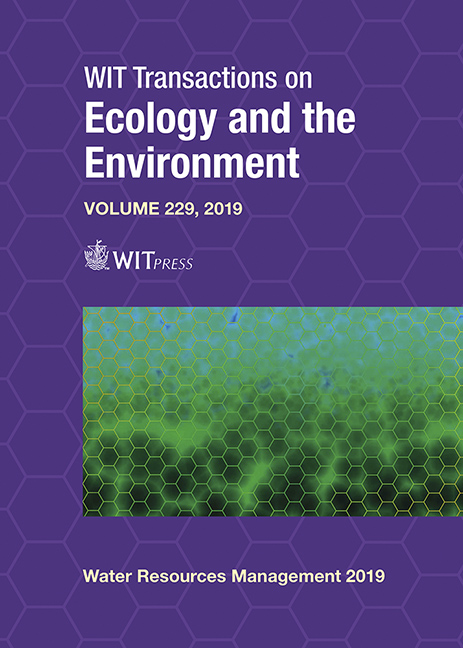ROOFTOP RAINWATER HARVESTING: ALLEVIATING WATER SHORTAGES AT THE HOUSEHOLD LEVEL
Price
Free (open access)
Transaction
Volume
229
Pages
12
Page Range
21 - 32
Published
2019
Paper DOI
10.2495/WRM190031
Copyright
WIT Press
Author(s)
IBRAHIM ALAMEDDINE, AMANI MAJZOUB, MAJDI ABOU NAJM, MUTASEM EL-FADEL
Abstract
Population growth and development coupled with potential climate change impacts are invariably associated with chronic water shortages particularly in arid and semi-arid regions. In this study, we examined the socioeconomic feasibility of implementing rainwater harvesting systems (RWHS) on building rooftops to alleviate chronic water shortages. Examining the socio-economic factors affecting the willingness of people to participate in such programs, it was found that education and the availability of outdoor space affected the rate of participation positively, while the age of the respondent and the number of floors in a building decreased people’s keenness to participate. The cost of harvested rainwater per cubic meter was found to range between $0.16 and $0.28/m3, which compares favourably with the existing public network tariffs ($0.37/m3–$1.4/m3) and provides major savings when compared to the costs associated with different adaptation measures commonly used by residents (reverse osmosis system = $1.36/m3; water tankers = $5.64-10/m3). On average, a household with a monthly income below $1,500 was willing to invest $0.54/m3 in a RWHS compared to $2.34/m3 for those whose monthly income was above $6,000; for both income groups their average reported investment costs represented around 1% of their monthly income. At the economic viability level, a RWHS proved advantageous for a single household with 5 occupants, while harvested quantities for a multi-storey residential building with 50 occupants or more were relatively small in comparison to actual demands. Concerns over the water quality of the harvested rainwater were documented in the study area, with bacterial contamination proving to be a major concern.
Keywords
rainwater harvesting, willingness to participate, willingness to pay, water quality





